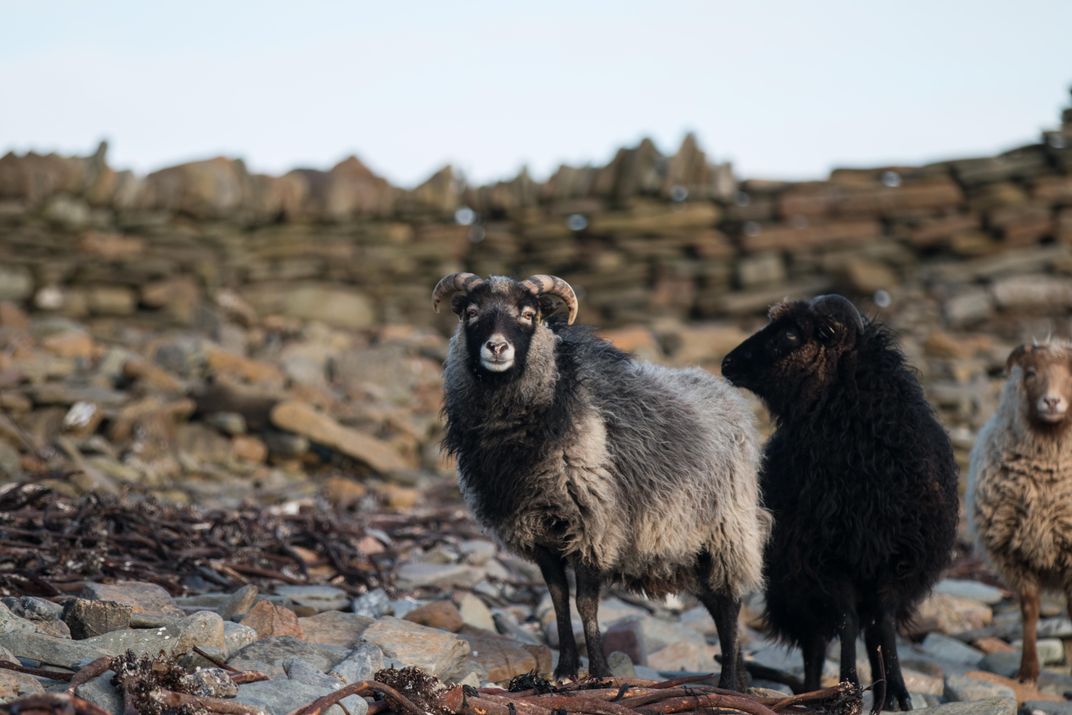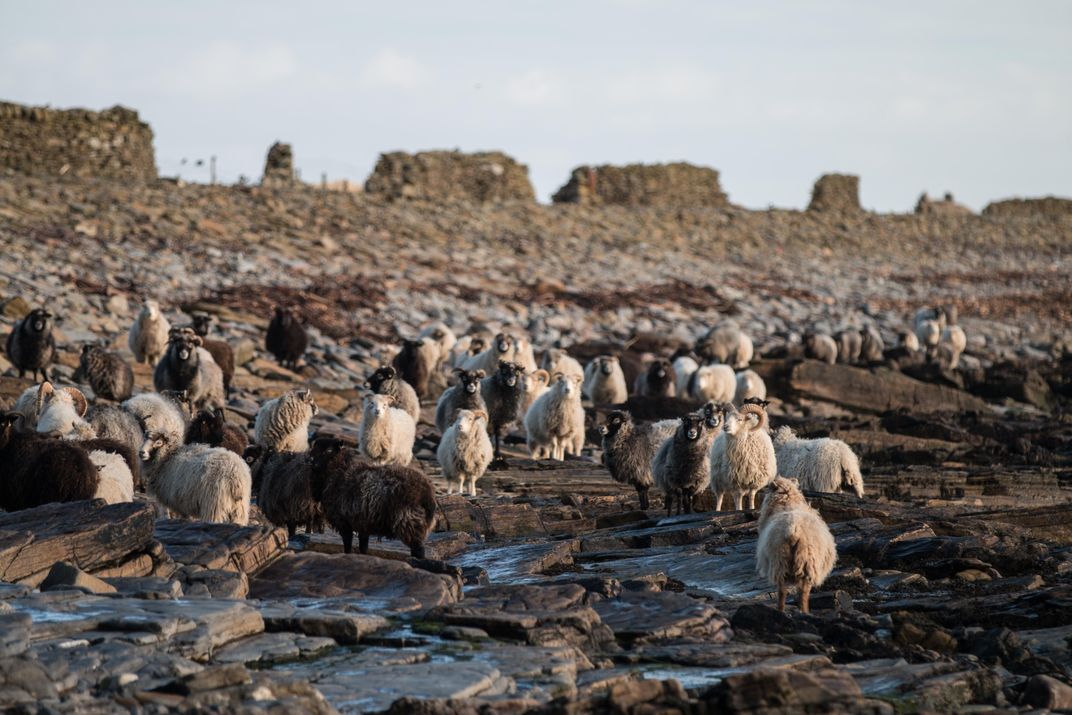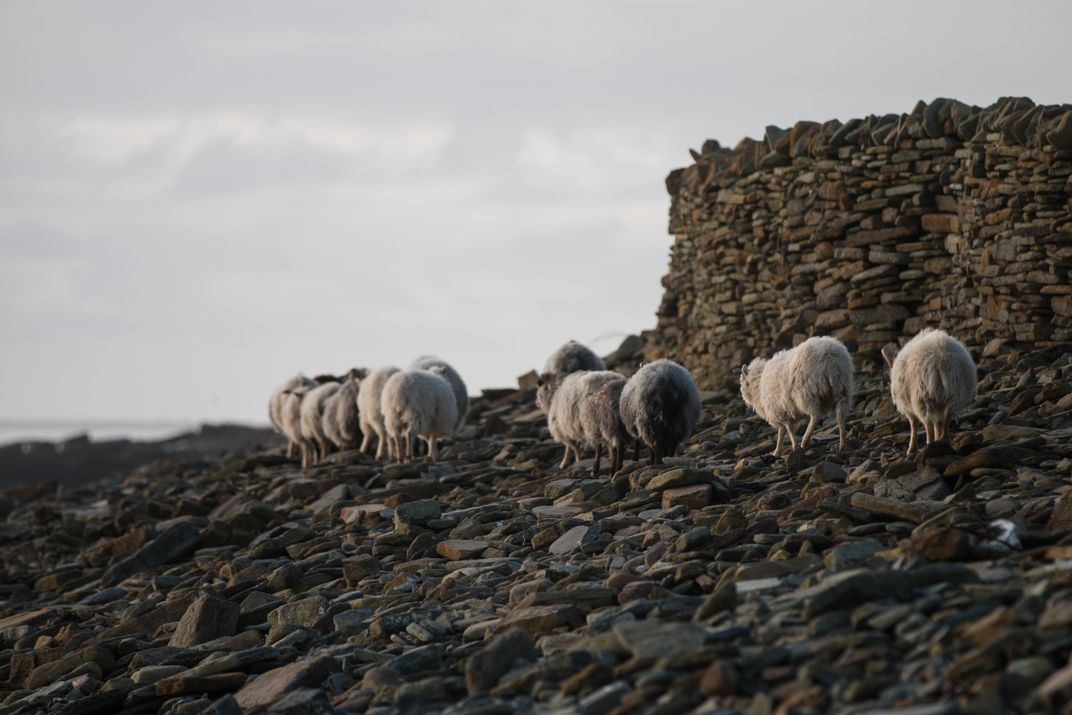A Remote Scottish Island Needs Help Protecting Its Seaweed-Eating Sheep
North Ronaldsay is looking to hire a warden to rebuild the dike that has long kept its sheep on the coastline
/https://tf-cmsv2-smithsonianmag-media.s3.amazonaws.com/filer/ad/bf/adbf9dcc-2634-406a-9a63-22747f7c69da/img_4321.jpg)
Sheep outnumber humans on North Ronaldsay, a remote island on the tip of Scotland’s Orkney archipelago—and a very odd breed of sheep they are, too. These woolly creatures subsist on a diet of seaweed, rather than grass and other plants, and a centuries-old dike has been stopping them from munching on the island’s agricultural land. But as the BBC reports, this historic wall is crumbling. So North Ronaldsay is looking to hire a dedicated warden to make sure that the dike stays standing and the seaweed-eating sheep stay safe.
North Ronaldsay sheep belong to an ancient breed believed to have been spread across Europe by Neolithic farmers. And for thousands of years, sheep on the Orkney Islands have been eating seaweed, perhaps because winters there dramatically reduced the amount of available pastures. But the grazers of North Ronaldsay became ever-more dependent on seaweed in the 19th century, during a period of crisis in the island’s history.
The abundance of seaweed on Orkney’s shores once made the archipelago a major player in the industrialization of the 18th and 19th centuries. When seaweed is burned, it produces an ash rich in potash and soda, substances that were valuable to soap and glass manufacturers. On North Ronaldsay and elsewhere, business boomed—until the early 1800s, when mineral deposits discovered in Germany sent Orkney’s kelp industry spiralling.
North Ronaldsay adapted to the change in its fortunes by transitioning to an agricultural economy, making improvements to fields and crops and importing larger breeds of sheep than the one that had been inhabiting the island for centuries. Residents needed to keep the ancient sheep away from arable land, so they built a drystone wall around the entire circumference of the island in 1832. The North Ronaldsay sheep were thus relegated to region’s rocky coast—and they adapted quite well. With the exception of a few months each year when ewes and lambs are brought inland to graze, the sheep stay on the shores eating seaweed. According to Amanda Ruggeri of the BBC, the animals have become attuned to the rhythm of the sea, sleeping during high tide and waking up at low tide to eat.
Over 187 years of adhering to an unusual seaweed diet, North Ronaldsay sheep have evolved to absorb more copper from their food, which means that they are vulnerable to copper poisoning. Eating too many terrestrial plants can be fatal to them, which is one reason that locals are concerned about damages to the dike, weakened over the years by stormy weather. Keeping the animals away from crops is another point of concern. “If [the sheep] had free roam of the island, they would be eating any crop they could find,” John Scott, the current chairman of the North Ronaldsay Trust, tells Jessica Leigh Hester of Atlas Obscura.
Islanders also want to make sure that the sheep aren’t able to jump the wall and mate with other breeds, which could spell the end of the ancient lineage. North Ronaldsay sheep are important to the island both culturally and economically, providing meat and wool that residents can export.
Traditionally, landowners and shepherds have been responsible for maintaining the dike’s integrity, but the North Ronaldsay population is aging, and the community is in need of help. An annual festival brings volunteers to the island to help patch up the wall, but Scott says that it has become necessary to have someone on the job full time.
“[T]he amount of dike that needs rebuilt is beyond what local people can do,” he explains, “If we have a person who’s full-time, we can get more dike built and more critical ‘strategic’ dike built too.”
The job listing for the warden post calls for candidates who have a “good level of fitness” and “good communication skills.” Experience with project management and drystone diking is a plus. But more important, perhaps, is applicants’ willingness to immerse themselves in a small community of just a few dozen people.
“There’s a very strong sense of community on North Ronaldsay and this role will give the successful applicant a hugely rewarding lifestyle,” Scott says. “Everyone who’s moved to the island in recent years has been made to feel very welcome and it’ll be the same for whoever is fortunate enough to land this unique job.”


